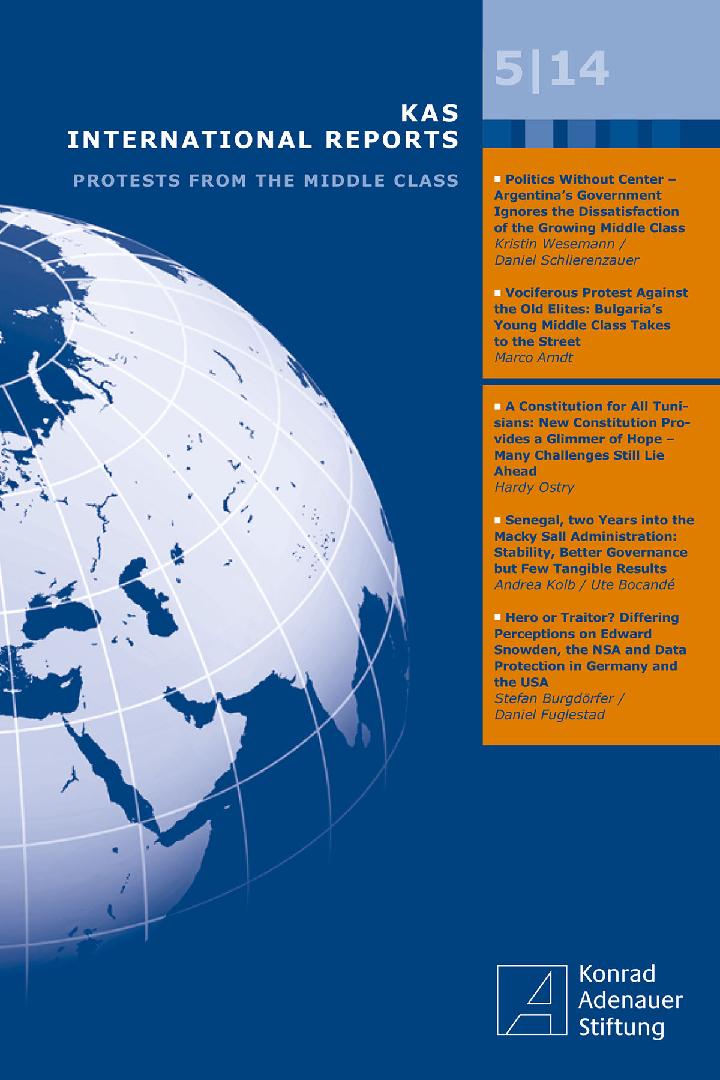Editorial | Politics without Center - Argentina’s Government Ignores the Dissatisfaction of the Growing Middle Class | Vociferous Protest against the Old Elites - Bulgaria’s Young Middle Class Takes to the Street | A Constitution for all Tunisians - New Constitution Provides a Glimmer of Hope – Many Challenges Still Lie Ahead | Senegal, two Years into the Macky Sall Administration - Stability, Better Governance but Few Tangible Results | Hero or Traitor? Differing Perceptions on Edward Snowden, the NSA and Data Production in Germany and the USA
View table of contentsAbout this series
International Reports (IR) is the Konrad-Adenauer-Stiftung's periodical on international politics. It offers political analyses by our experts in Berlin and from more than 100 offices across all regions of the world. Contributions by named authors do not necessarily reflect the opinions of the editorial team.
Order details
Our periodical on international politics is published four times a year. We provide you with background information on what is happening in the world – free of charge. Use our registration form and with just a few clicks you can read the digital version of our political journal or order the print version in German or English.
Editor
Dr. Gerhard Wahlers
ISBN
0177-7521
Benjamin Gaul
 benjamin.gaul@kas.de
+49 30 26996 3584
benjamin.gaul@kas.de
+49 30 26996 3584

Head of the Department International Reports and Communication
Rana Taskoparan
 rana.taskoparan@kas.de
+49 30 26 996 3623
rana.taskoparan@kas.de
+49 30 26 996 3623

Policy Advisor for Communication and Marketing





